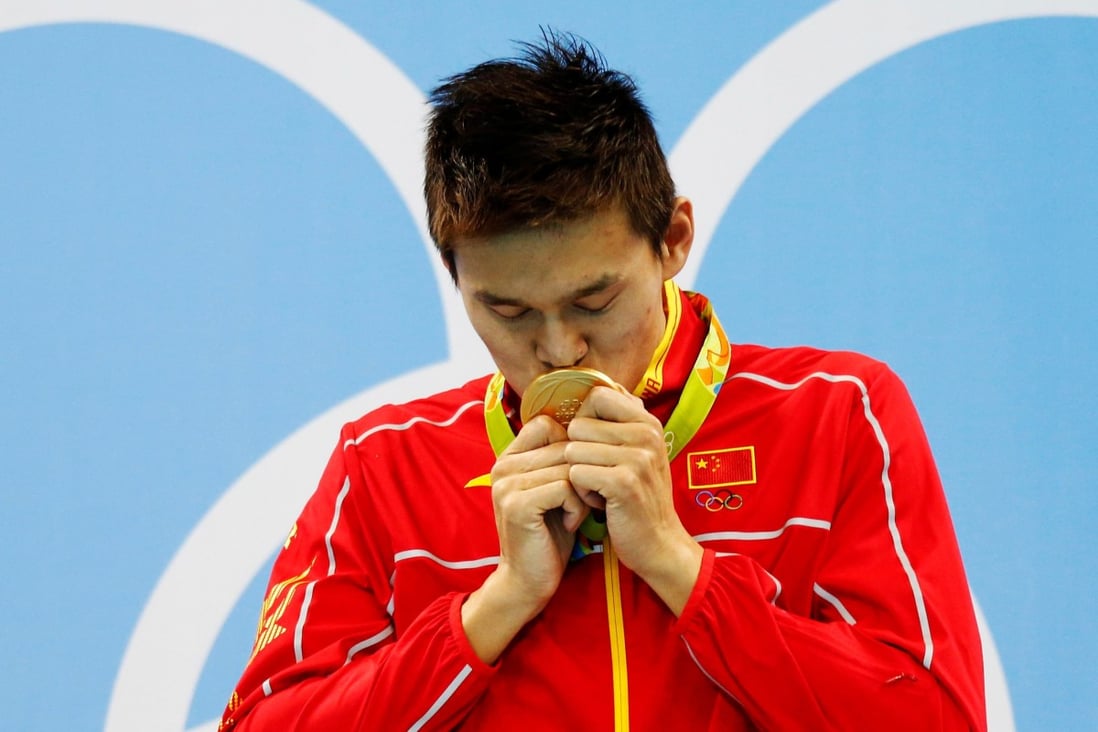
China has become a formidable force at the modern Summer Olympic Games and has finished in the top four of the medal table in all but one of the last nine Olympics.
The country boasts a total of 224 gold medals from just 10 Games campaigns and sits seventh in the all-time list of Olympic medal-winning nations.
China will send a squad of 392 athletes to compete in Japan later this month and will almost certainly add to its massive medal haul there when new gold-winning Olympians from China are likely to be crowned.
But who are China’s best ever Olympians? So many Chinese athletes have taken to the podium for China, but who ranks top among them?
This list aims to identify the cream of China’s crop down the years. Part one of this list is available here.
China’s top Olympic athletes of all time: part one – Lin Dan, Li Ning and Fu Mingxia
Zou Kai
Gymnastics (floor exercise, horizontal bar)
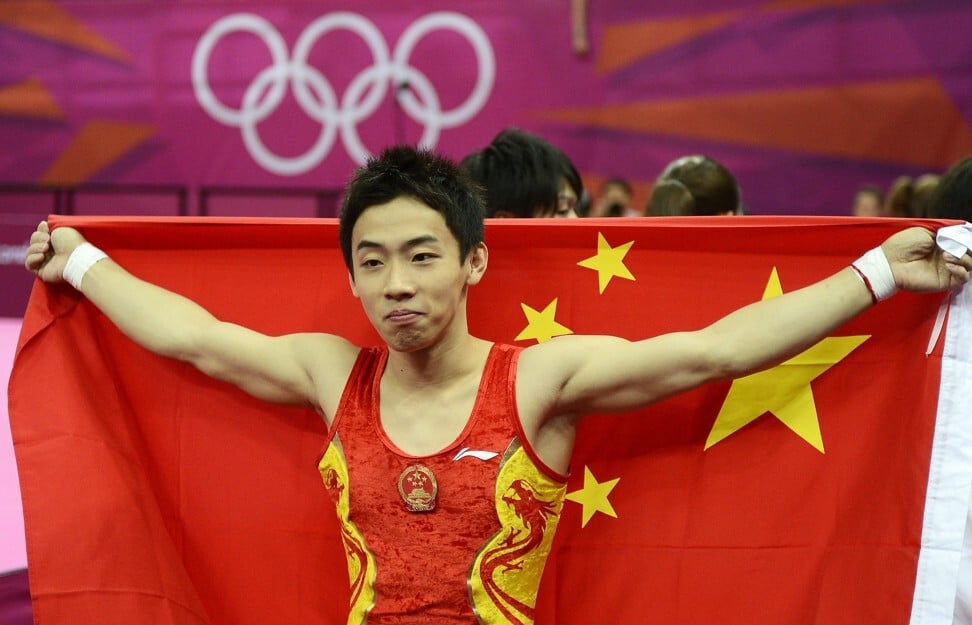
Born: February 25, 1988 (Luzhou, Sichuan).
Notable Olympic performances:
2008 Summer Olympics, Beijing, China: three gold medals (floor exercise, horizontal bar, team).
2012 Summer Olympics, London, UK: two golds (floor exercise, team); one bronze (horizontal bar).
2016 Summer Olympics, Rio, Brazil: did not participate due to injury, later forcing him to retire.
Honours:
Laureus World Sports Award for Breakthrough of the Year, 2009.
Post-retirement, Zou was elected to the Chinese People’s Political Consultative Conference, one of China’s two major deliberative bodies.
Zou Kai continued China’s gymnastics dynasty at its home Games when he made his Olympics debut as a 20-year-old in Beijing. He had already won a handful of titles at the World Championships and the Beijing Games were a coming out party for Zou, who captured three gold medals in the team, floor exercise and horizontal bar events. He matched the legendary Li Ning’s performances from the 1984 Summer games, making Zou only the second Chinese athlete to complete a three-gold haul in a single Olympics.
The Chinese team defended their title at the 2012 London games, as did Zou in the floor exercise event, making him only the second athlete to do so. He also added a bronze in the horizontal bar.
Following the historic performance, Zou’s career stalled and eventually came to an end because of injuries. He did not compete in the 2016 Rio Games, but he finished holding the record among Chinese athletes for most gold medals at five and is tied for the record of most medals won with six.
Sun Yang
Swimming (200-metre, 400m and 1,500m freestyle)
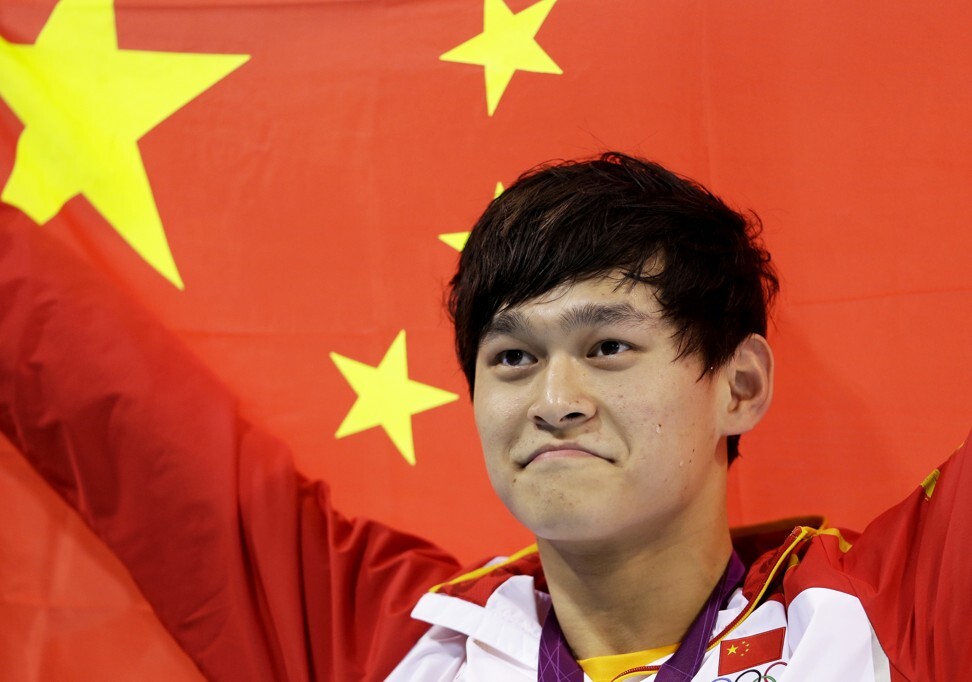
Born: December 1, 1991 (Hangzhou, Zhejiang).
Notable Olympic performances:
2012 Summer Olympics, London, UK: two gold medals (400m freestyle, 1,500m freestyle); one silver (200m freestyle); one bronze (4x200m freestyle).
2016 Summer Olympics, Rio, Brazil: one gold (200m freestyle); one silver (400m freestyle).
Honours:
Sun was the first swimmer in history to win Olympic golds in the 200, 400 and 1,500m freestyle events.
He is the most decorated Chinese swimmer of all time, with three Olympic golds and 11 World Championships.
Sun Yang is probably China’s most famous contemporary athlete, for his world-class performances in the pool and for a doping controversy that has divided swimming into those who call him a drug cheat and those who feel he is being victimised. Sun, a three-time Olympic gold medallist who holds the men’s 1,500m freestyle world record, was handed an eight-year ban in February last year by the Court of Arbitration for Sport for destroying a vial of his blood sample during a September, 2018 dope test at his home in Hangzhou, Zhejiang province. That ban was reduced to four years after a May 2021 retrial.
Sun claimed the testers failed to provide proper ID, and months after the CAS ruling, the Swiss Federal Court upheld Sun’s appeal and sent the case back to CAS because one of the judging panellists had posted anti-Chinese messages on social media.
In the pool, his fiercest rival, Australia’s Mack Horton, refused to share the podium with the 29-year-old at the 2019 world championships, with Britain’s Duncan Scott declining to shake his hand.
The controversies, though, cannot hide his supreme talent. At the 2012 Olympic Games in London, Sun won the 400m freestyle in an Olympic record time of three minutes, 40.14 seconds, which was also the third-fastest time in history and only 0.07 seconds away from the world record. The win also made Sun the first Chinese male swimmer to win gold.
The following day Sun earned silver in the 200m freestyle, but made another big splash on the last day of competition when he broke his own world record to earn gold in the 1,500m freestyle.
After winning several World Championships in the years that followed, Sun made his return at the 2016 Summer Games in Rio. He took home gold in the 200m freestyle, but failed to defend his titles in the 400 and 1,500m freestyles, earning a silver in the former while failing to qualify for the latter. The successive victories made Sun the first swimmer in history to win Olympic golds in the 200, 400 and 1,500m freestyle events.
Sun Yang: why is China’s star swimmer missing Tokyo 2020 Olympics?
Liu Xiang
Athletics (110m hurdles)
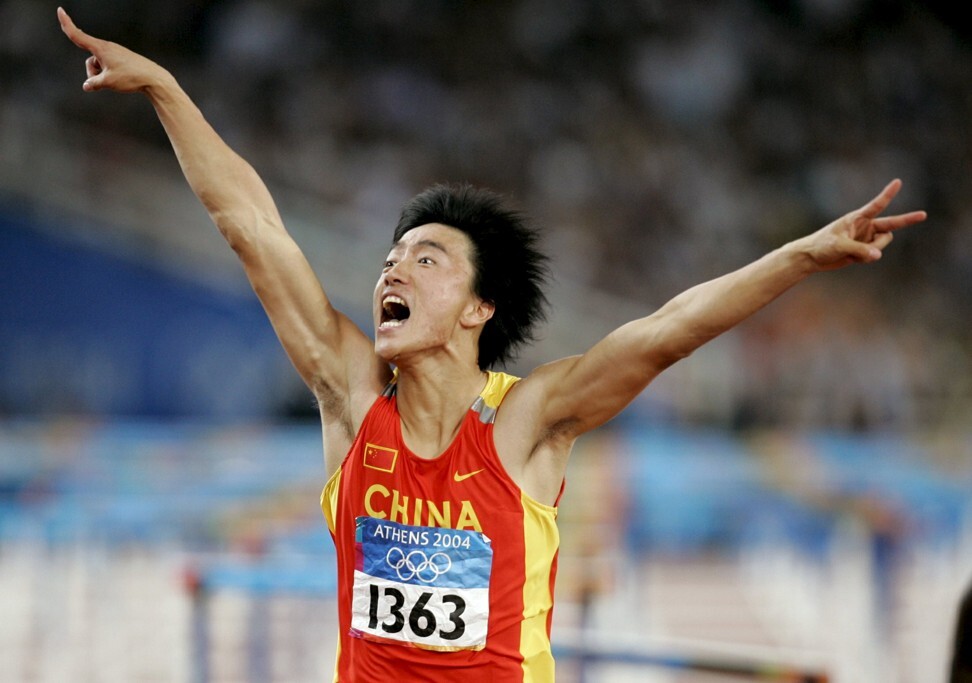
Born: July 13, 1983 (Putuo, Shanghai).
Notable Olympic performances:
2004 Summer Olympics, Athens, Greece: gold medal (110m hurdles).
Honours:
Asian Games: 2002 Busan, gold; 2006 Doha, gold; 2010 Guangzhou, gold.
World Championships: 2007 Osaka, gold.
World Indoor Championships: 2008 Valencia, gold.
Liu Xiang may have won just one gold medal at the Olympics but for many it is one of the most significant triumphs in China’s modern sporting history. The then 21-year-old swept to the gold medal in the 110m hurdles at the 2004 Athens Games in a record-equalling time of 12.91 seconds, giving China their first gold in a major men’s track and field event since they returned to the Olympic fold in 1984.
After his World Championships success in 2007, he became the first 110m hurdler to boast the triple crown of world champion, Olympic champion and world record-holder. He was also world indoor champion in 2008 and won three straight gold medals at the Asian Games from 2002 to 2010.
Athens, though, was to be his last taste of glory at the Olympic Games. At his home Olympics in Beijing in 2008, he was forced to pull out because of a false start and injury, while in London 2012, he injured his Achilles tendon during the heats. He retired in 2015 as one of China’s greatest Olympians.
Lang Ping
Volleyball
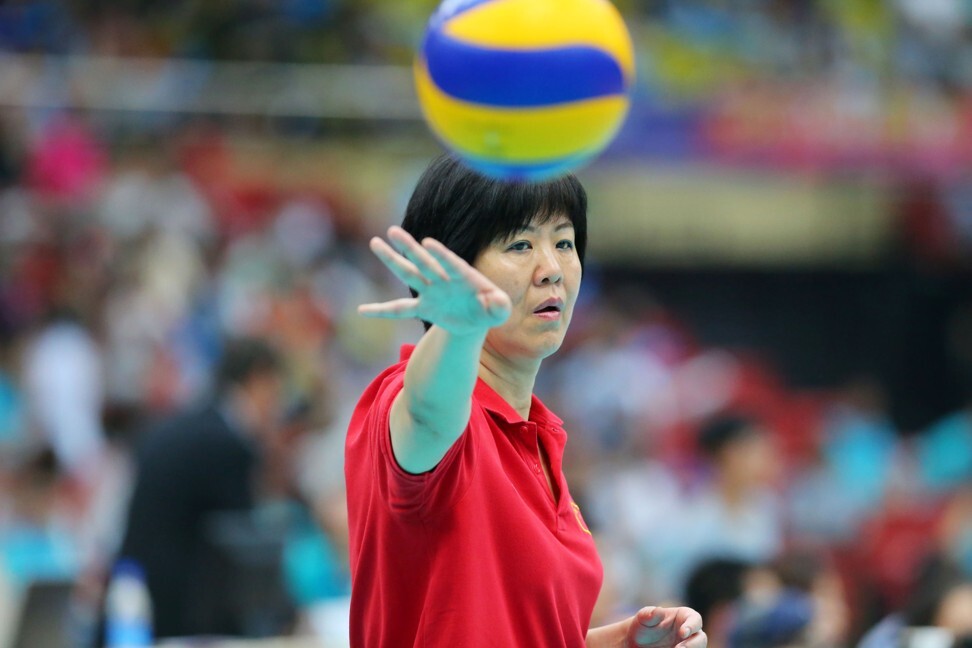
Born: December 10, 1960 (Tianjin).
Notable Olympic performances:
1984 Summer Olympics, Los Angeles, USA: gold (player)
1996 Summer Olympics, Atlanta, USA: silver (coach of China)
2008 Summer Olympics, Beijing, China: silver (coach of USA)
2016 Summer Olympics, Rio de Janeiro, Brazil: gold (coach of China)
Honours:
World Cup: 1981, gold; 1985, gold; 2015, gold (coach); 2019, gold (coach).
World Championship: 1982, gold.
Lang Ping is considered the matriarch of Chinese sport for her services to volleyball over the past four decades. She commands the utmost respect from Chinese fans and anyone else who has been following sport in China. She was among the first sporting icons in the mainland after helping the Chinese women’s team to the gold medal at the 1984 Los Angeles Olympics.
Thirty-two years later, she was coach of the Chinese team who won the gold medal at the 2016 Rio Olympics, becoming the first person to win volleyball gold as a player and a coach. It was her second stint as the Chinese women’s coach, having taken the team to a silver medal at the Atlanta Games. Lang, who resides mostly in the United States, was also head coach of the US team when they beat China in the 2008 Beijing Olympics on the way to a silver medal, losing to Brazil in the final.
Having led China to gold medals in the 2015 and 2019 World Cups, Lang is in charge of a new golden generation of Chinese volleyball players, led by Zhu Ting, as they seek to defend their title in Tokyo.
Wu Minxia
Diving (3m springboard)
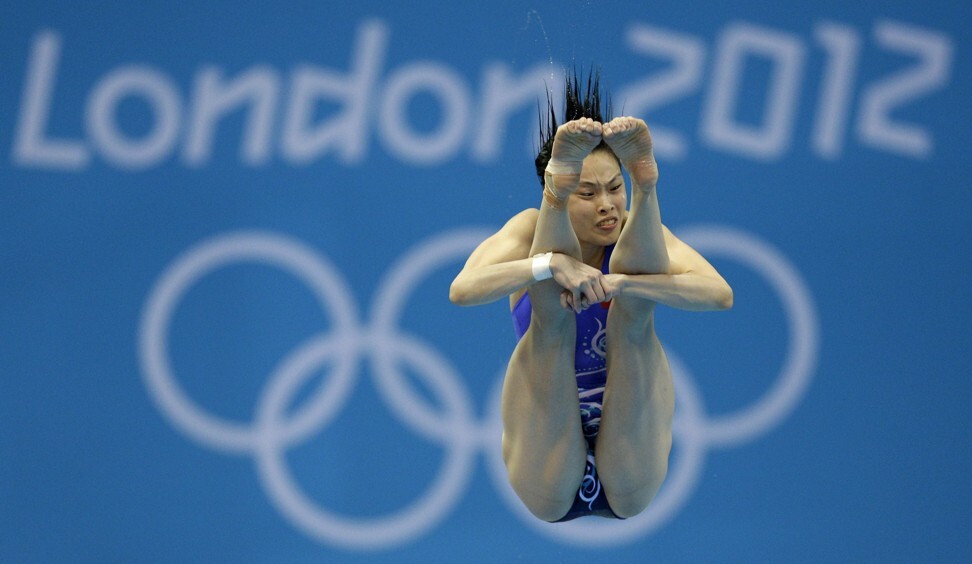
Born: November 10, 1985 (Shanghai).
Notable Olympic performances:
2004 Summer Olympics, Athens, Greece: gold (3m synchronised springboard); silver (3m springboard).
2008 Summer Olympics, Beijing, China: gold (3m synchronised springboard); silver (3m springboard).
2012 Summer Olympics, London, UK: two gold medals (3m synchronised springboard, 3m springboard).
2016 Summer Olympics, Rio de Janeiro, Brazil: gold (3m synchronised springboard).
Wu Minxia is the most decorated female athlete in the sport of diving and is also an Olympic legend, winning five gold medals and one silver and a bronze over four Games starting with her debut in Athens in 2004. She won four consecutive 3m springboard synchronised golds with three different partners, starting with Guo Jingjing in Athens and claimed the 3m individual springboard in London 2012 after a bronze in Beijing 2008 and silver in Athens.
The eight-time world champion also proved her durability as a top-class diver at the Asian Games, winning five gold medals from her debut in Busan in 2002 up until her final Games in Guangzhou in 2010.
Wu won two Olympic gold medals with Guo in the synchronised springboard and after the latter retired, Wu linked up with He Zi to win the gold in London. She became the first woman to win gold medals in consecutive Olympics. It was reported after the competition that her grandmother had died one year before and that her mother had cancer, with the news being kept from her so she could focus on her training.
Wu then partnered Shi Tingmao to win the synchronised events at the 2013 and 2015 World Championships and the pair won on to repeat their success at the Rio Games for Wu’s fourth straight gold in the event.
Guo Jingjing
Diving (3m springboard)
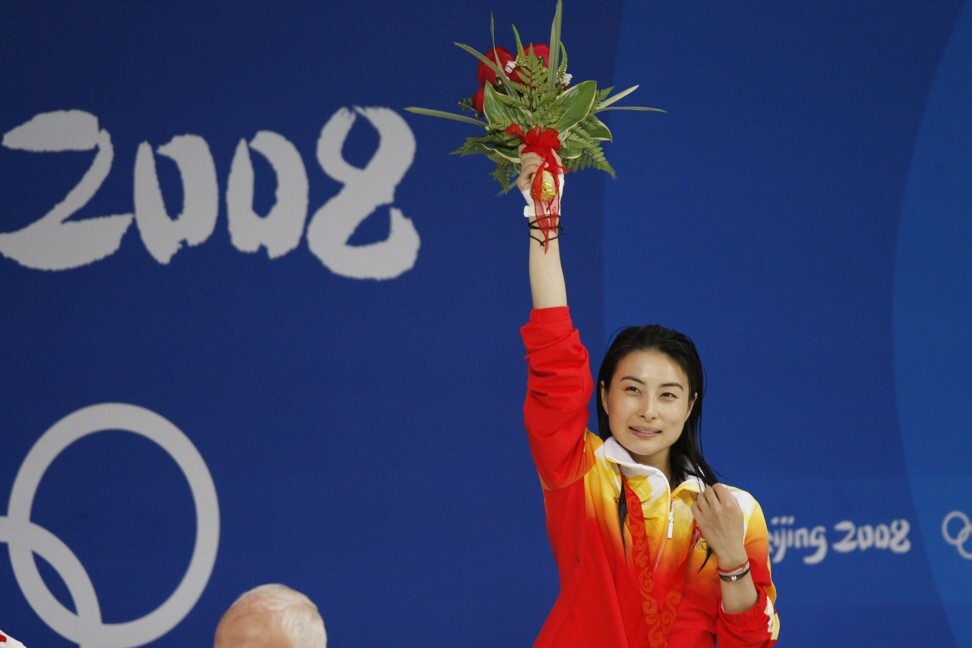
Born: October 15, 1981 (Baoding, Hebei).
Notable Olympic performances:
2000 Summer Olympics, Sydney, Australia: two silver medals (3m synchronised springboard, 3m springboard).
2004 Summer Olympics, Athens, Greece: two gold medals (3m synchronised springboard, 3m springboard).
2008 Summer Olympics, Beijing, China: two gold medals (3m synchronised springboard, 3m springboard).
Guo Jingjing dominated the springboards of women’s diving for many years, winning four golds over two Olympic Games as well as 10 world titles, including five straight double victories in the individual and synchronised springboards in five successive World Championships. She also has four Asian Games gold medals to confirm her place as one of China’s and the world’s all-time great diving talents.
She formed a powerful partnership with Wu Minxia in the women’s 3m synchronised springboard, winning two consecutive gold medals in 2004 Athens and 2008 Beijing. She also was the 3m springboard individual champion in those two Olympics.
Her four Olympic golds, though, are dwarfed by the 10 titles she won at the world championships, all in the 3m springboard and synchronised springboard. She won the double in 2001 in Fukuoka, Japan and repeated the feat in Barcelona in 2003, Montreal in 2005, Melbourne in 2007 and Rome in 2009. She also won an individual silver in Perth in 1998.
Guo would later marry Kenneth Fok Kai-kong, vice-president of the Hong Kong Olympic Committee and eldest son of its president, Timothy Fok Tsun-ting.







